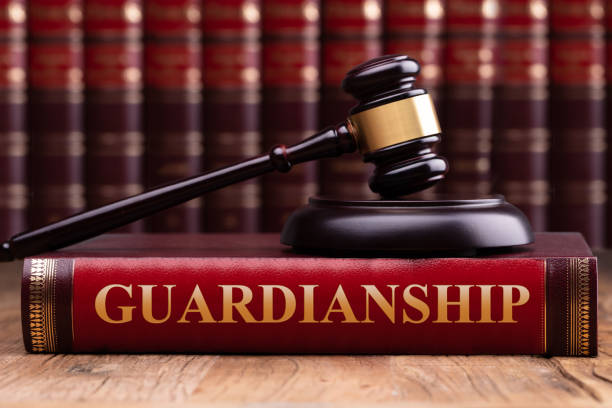What You Need To Know About Texas Guardianship Laws

The Texas guardianship laws are designed to protect those who can no longer take care of themselves or their property. In Texas, guardianship is a legal relationship between the ward (the person who needs the guardian) and the guardian. The guardian has certain rights, duties, and powers to make decisions for the ward. However, in general, a guardian must act in the ward’s best interest.
Texas guardianship laws also protect disabled or elderly people from abuse by family members or others who seek to take control of the person and their property. The State of Texas recognizes that a person’s rights should only be removed if absolutely necessary. Therefore, the court will only grant guardianship if it determines that there is no less restrictive alternative available to protect the person or their property.
Here we give an overview of the requirements to become a guardian in Texas and some of the duties and responsibilities of guardianship. The information here is not intended to substitute legal advice from your attorney.
What are the Requirements for Becoming a Guardian in Texas?
A guardian can be a person, a business, or a government agency.
A guardian must meet three basic requirements:
- The guardian must be over 18 years old and not be convicted of a felony
- The guardian must be a resident of Texas or a close relative of the ward who lives in Texas
- The guardian must not have been declared mentally incompetent by a court.
When Can Guardianship Be Established?
A guardianship may be established for an incapacitated person (called a “ward”) if:
(1) That person is unable to provide food, clothing, or shelter for themselves because of physical or mental limitations.
(2) Is unable to manage their financial affairs because of physical or mental limitations;
(3) Is not receiving essential care, treatment, rehabilitation, or services necessary for their well-being and more.
How to Initiate Guardianship Proceedings
Guardianship proceedings are initiated by the filing of an application for the appointment of a guardian. A “guardian” is a person appointed in a guardianship proceeding who has the legal duty and authority to make decisions concerning the care, custody, and management of the person and/or estate of an incapacitated person. In Texas, you must be at least eighteen (18) years of age in order to serve as a guardian. The term “incapacitated person” refers to any individual for whom a guardian may be appointed.
The laws authorizing guardianship proceedings are found primarily in Chapters 601 through 654, Title III, Estates Code. Guardianship proceedings may be filed in either county court or district court, but most are filed in county courts.
The County Court hears all cases filed under Title III of the Texas Estates Code concerning guardianship and protective proceedings, conservatorships, adult guardianship, and probate matters. Guardianships are established by filing an Application for Appointment of Guardian and obtaining an Order Appointing Guardian from the County Court.
In Texas, the court process that determines whether a person is incapacitated and in need of a guardian is called the Protective Proceedings process. It is sometimes referred to as the “protective order” process because it begins with filing an application for a protective order. Please see our page on Protective Proceedings for more information about this process.
A guardian may also be appointed by the court at the request of an adult who wishes to have someone help them manage their affairs. This is called voluntary guardianship and requires that the applicant sign an affidavit stating that they are doing so voluntarily and are not under duress or undue influence by any other person.
Texas Guardianship Law: An Overview
Texas guardianship law determines when and if a person can act as a legal guardian for someone else. The two main types of guardianships include:
Guardianship of the person: A legal guardian is assigned to care for someone incapable or partially capable of taking care of themselves. This type of person may be mentally or physically unable to care for themselves or make decisions regarding their life.
Guardianship of the estate: A legal guardian is assigned to oversee another’s assets and finances – including bank accounts, real estate, and investments – which are held in trust for their benefit.
A guardian serves as the legal representative for a ward, who is the individual that needs assistance managing personal affairs or property. To become a guardian in Texas, an application must be submitted to the court that has jurisdiction over the area in which the ward lives. The judge will then decide whether or not guardianship should be granted by considering all relevant evidence, including whether there are any less restrictive alternatives available.
What Happens if There is Opposition to Guardianship
As earlier said, guardianship can be initiated by filing an application with the court. The application can be filed by any interested person or by registry-qualified professionals such as doctors or nurses who have examined the proposed ward. If there is opposition to guardianship, the court will hold a hearing at which everyone involved can testify and present evidence. The court will then decide if a guardian is needed and, if so, who should serve in that role.
Duties and Responsibilities of a Guardian
Guardianship is a court-ordered relationship between a guardian and one or more incapacitated persons. The Texas Probate Code sets out the rights and duties of guardians.
Before deciding whether you are able and willing to accept an appointment as guardian, you should consider all of your duties and responsibilities carefully:
- You will be required to post a bond
- You must provide an accounting every year
- You must provide copies of the annual account
A guardian’s primary responsibility is to ensure the incapacitated person (or ward) gets the care and support needed to maintain their physical health and safety.
Finally, a guardian may have control over all aspects of the ward’s life and property. The exact powers granted to a guardian depend on the type of guardianship ordered by the court and specified in the letters issued by the clerk of court.










